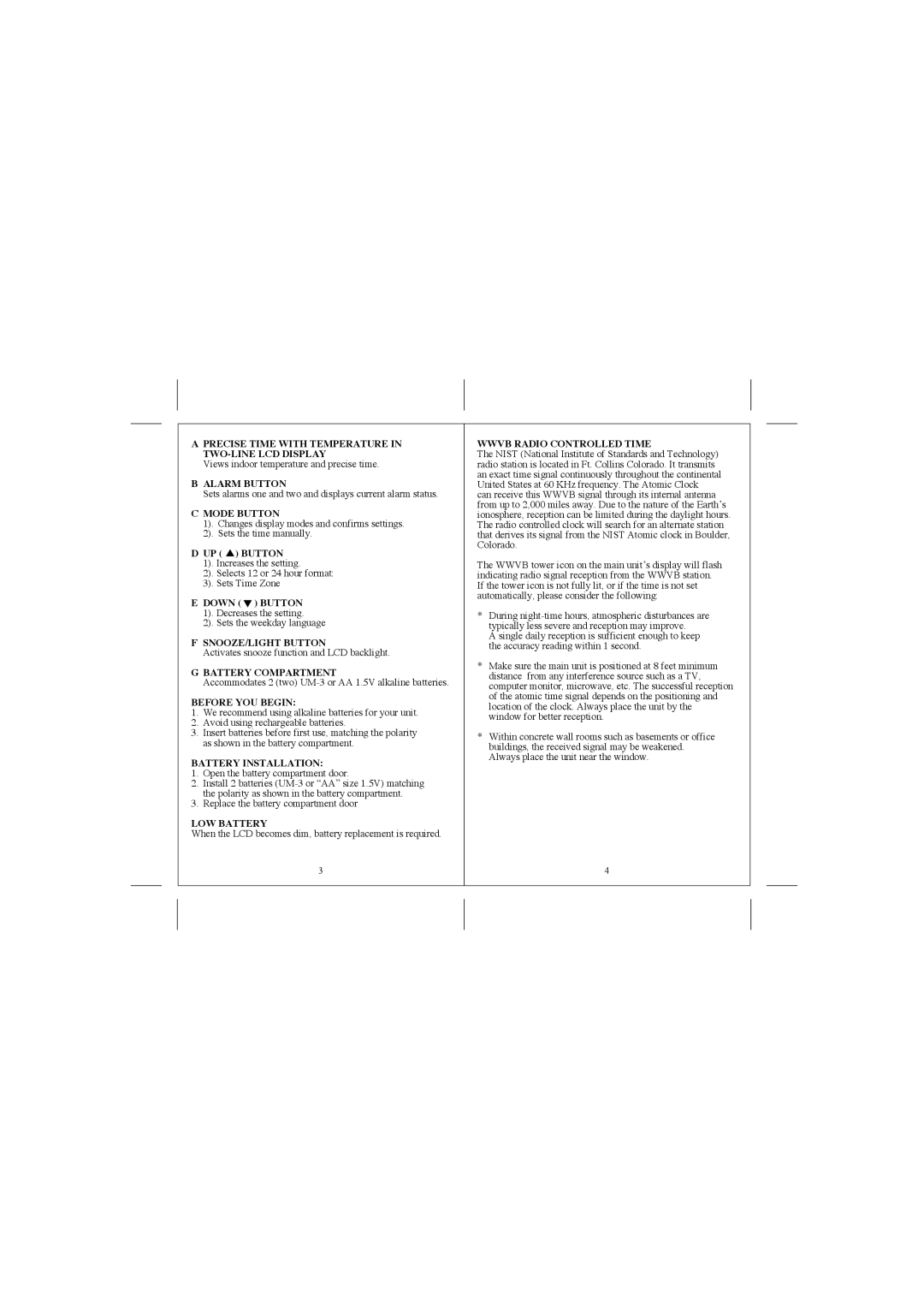
APRECISE TIME WITH TEMPERATURE IN TWO-LINE LCD DISPLAY
Views indoor temperature and precise time.
BALARM BUTTON
Sets alarms one and two and displays current alarm status.
CMODE BUTTON
1). Changes display modes and confirms settings.
2). Sets the time manually.
DUP (  ) BUTTON
) BUTTON
1). Increases the setting.
2). Selects 12 or 24 hour format:
3). Sets Time Zone
EDOWN ( ) BUTTON
1). Decreases the setting.
2). Sets the weekday language
FSNOOZE/LIGHT BUTTON
Activates snooze function and LCD backlight.
GBATTERY COMPARTMENT
Accommodates 2 (two)
BEFORE YOU BEGIN:
1.We recommend using alkaline batteries for your unit.
2.Avoid using rechargeable batteries.
3.Insert batteries before first use, matching the polarity as shown in the battery compartment.
BATTERY INSTALLATION:
1.Open the battery compartment door.
2.Install 2 batteries
3.Replace the battery compartment door
LOW BATTERY
When the LCD becomes dim, battery replacement is required.
3
WWVB RADIO CONTROLLED TIME
The NIST (National Institute of Standards and Technology) radio station is located in Ft. Collins Colorado. It transmits an exact time signal continuously throughout the continental United States at 60 KHz frequency. The Atomic Clock can receive this WWVB signal through its internal antenna from up to 2,000 miles away. Due to the nature of the Earth’s ionosphere, reception can be limited during the daylight hours. The radio controlled clock will search for an alternate station that derives its signal from the NIST Atomic clock in Boulder, Colorado.
The WWVB tower icon on the main unit’s display will flash indicating radio signal reception from the WWVB station. If the tower icon is not fully lit, or if the time is not set automatically, please consider the following:
*During
A single daily reception is sufficient enough to keep the accuracy reading within 1 second.
*Make sure the main unit is positioned at 8 feet minimum distance from any interference source such as a TV, computer monitor, microwave, etc. The successful reception of the atomic time signal depends on the positioning and location of the clock. Always place the unit by the window for better reception.
*Within concrete wall rooms such as basements or office buildings, the received signal may be weakened. Always place the unit near the window.
4
